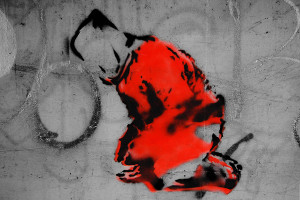UK Complicity in Post-9/11 Torture and Rendition, We’re Still Waiting for the Truth
Thirteen Years After Liberty First Called for a Judge-led Inquiry

Note to readers: please click the share buttons above
The prohibition on torture is one of the few absolute rights. Its use can never be justified, regardless of the circumstances.
After 9/11, the USA engaged in an appalling programme of torture and rendition – all in the name of the so-called ‘war on terror’.
From 2002, UK intelligence and security agencies – hoping to prevent a similar attack on our soil – participated in an estimated 2 to 3,000 detainee interviews conducted by US authorities in locations including Afghanistan, Iraq and Guantanamo Bay.
It’s long been known that the UK got its hands dirty in the process. But – 16 years on – the extent to which the UK was involved in US torture and rendition remains unknown.
Successive governments have repeatedly committed to holding a robust, independent inquiry – including former Prime Minister David Cameron who, in 2010, rightly said:
“The longer these questions remain unanswered, the bigger the stain on our reputation as a country”.
Cameron set up an inquiry, chaired by Sir Peter Gibson. But it was flawed – a secret internal inquiry with the Government in control – and barely got off its feet before being shelved due to ongoing criminal investigations.
In June this year, unjustified Government restrictions also stymied the most recent attempt to uncover the truth – by Parliament’s Intelligence and Security Committee (ISC).
Liberty has always been clear in its position. Only an independent judicial inquiry can expose the truth and clear the stain on the UK’s reputation as an upholder of the rule of law and respecter of human rights.
Willful complicity
In June 2018, the ISC published a pair of damning reports documenting UK complicity in US torture and mistreatment. Their findings are shocking.
The committee found that, in 232 cases, UK personnel assisted with interrogations when they should have known that torture or inhuman treatment was taking place.
On 326 occasions, UK officers received intelligence from prisoners who they knew were being mistreated. In almost 40 cases, UK officials either witnessed or were told of mistreatment by foreign partners or detainees themselves.
As the ISC concluded, the UK’s involvement amounted to a “simple outsourcing of action which they were not allowed to undertake themselves”.
But this willful complicity in horrifying abuse amounts to a direct and inexcusable rights violation in itself.
The ISC’s findings go some way to revealing the extent of UK complicity – but restrictions placed on the committee by the Government prevented its members from carrying out a truly comprehensive investigation.
Crucially, they were prevented from interviewing key witnesses and including evidence about specific incidences.
Those restrictions led the ISC to reluctantly conclude that it couldn’t progress any further with its inquiry.
But its revelations show UK agencies were far more deeply and systematically involved in US torture and rendition than previously known.
No compromise
On 2 July, the Government announced it would respond to renewed calls for an independent judge-led inquiry into UK involvement in torture and rendition within 60 days – which means any day now.
Liberty has repeatedly called for such an inquiry since 2005 – and we’re far from alone. Following the publication of the ISC reports, politicians and public figures on all sides have called for the same.
Along with a coalition of partner organisations, we’ve set out five key tests any proposed inquiry must meet in order to meet baseline standards of independence and effectiveness.
It must:
- Be established under the 2005 Inquiries Act and headed by a judge.
- Have an independent, judicial mechanism for open proceedings and publication.
- Have adequate legal powers to hold a full and effective investigation.
- Be empowered to examine all relevant evidence and cases, including those which have yet to be properly examined – such as Abdulhakin Belhaj and Fatima Boudchar.
- Ensure the meaningful involvement of torture survivors.
There can be no compromise when it comes to torture. Only by dragging this shameful episode out of the shadows and into the light will the UK be able to move forward – and make sure crucial lessons are learnt.
With every day the Government fails to launch a proper investigation, cover-up and official impunity persist.
Let’s hope they finally do the right thing this week.
*
Gracie came to Liberty in July 2017 and leads our work to oppose the Government’s “hostile environment” policies on immigration. Before joining Liberty, Gracie worked in casework, research and policy across several NGOs to support survivors of torture and working migrants to navigate the UK’s immigration system. She also trained public officials and third sector workers to use the Human Rights Act in their day-to-day work. She holds a Masters in Human Rights from the LSE and a degree in Philosophy & French from Oxford University.

